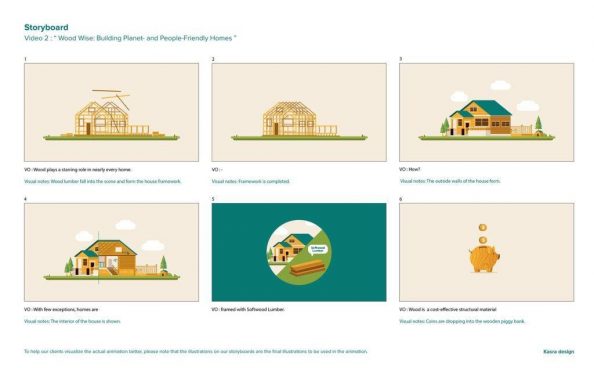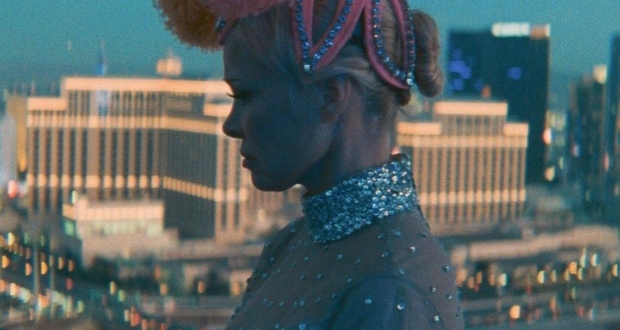Over the years, animated explainer videos have become one of the most effective and powerful forms of visual communication. Businesses and customers absolutely love this sort of communication. Colorful artworks, animated characters, limitless imagination backed by great sound, music, and a script makes an animated video the perfect branding tool.
Ever wondered about the history of animated videos or when it became popular in the business world?
We were curious and dug up some interesting info. Thought we’d share it here with you.
Get ready to go back in time!
It started with Common Craft in 2007
Animation itself was introduced way back in the 1900s, but up until the 2000s, it remained mostly a film-industry feature. Businesses never had the tools or resources to create animated videos. The internet revolution though changed everything. Common Craft, a small instructional video company made history when they created an animated explainer video explaining how Twitter works.
The video garnered 50M views (yea, that’s a lot of views!). Twitter was so impressed, they put it up on their website.
The platform launched its first How-it-works video on YouTube. From that moment on, animated explainer videos quickly became the next big thing.
Pretty soon after that, DropBox became the next company to make waves with explainer videos. Its how-it-works video pulled in 10 million users and they earned 50 million dollars as additional revenue after the video. This was the ultimate stamp of approval businesses needed in making animated explainer videos to explain how their products or services worked.
Following DropBox, it was Groupon, then Google then every other tech company in the world. Animated videos have now become so popular, that reportedly, 81% of businesses use it as a marketing tool.
How is an Animated Video Made?
Now that you know the history and how it became popular, let us quickly walk you through the video-making process. This is the process that we practice here at Kasra Design. It’s important to remember though that animated videos for businesses have a different process. This is a process that involves communicating with clients, understanding their needs, their audience, their marketing goals, and much more. The end product must address the business’s audience and must deliver information that can help leads become prospects.
1) List down objectives for the video: It’s important to know why the client wants an animated video. What purpose does it serve? Where will it be hosted? What is the outcome of the video? You will need to send over a detailed brief request to the client and communicate with them until you’re absolutely sure of their requirements.
2) Pitching ideas to the client for their approval: Once you have the brief, you can compile a presentation that includes multiple ideas and approaches. It’s important to pitch each idea with a basic level script. You can include characters, motivations and the story for each of the pitch.
3). Script Writing: Once the main idea is approved, the scriptwriting team steps in and works with animators to deliver a script that will include dialogues, story angle and the overall feel of the video. The final draft is sent to the client for approval.
4) Character & Style Sheet: While writers are working on the script, designers work on selected styles of illustration such as 2D, 3D or stop motion. Each of these styles will have its own timeline, costs, and creation process. Generally, 2D animation is easier and quicker, but 3D gives a more realistic touch. After the client approves of the style, the characters are created and any revisions needed are adjusted. It’s important to get the client to respond in a timely manner and to limit the round of revisions. Making a 2D or 3D animated video is a lengthy process and even a small revision can take up hours of rendering.

5) Storyboard Development: Now that characters, styles, and scripts are finalized, it’s time to work on the storyboard which is a graphic representation of how your video will unfold, shot by shot. It includes illustrations or pictures representing each shot, with notes about what’s going on in the scene and what’s being said in the script during that shot. 
6) Voice-Over Recording: A great voice-over makes explainer videos interesting and exciting. Many companies make the mistake of using robotic voice-over in their videos which ruins the experience for the audience. If you truly want a video that can connect with your audience and motivate them into purchasing your product or service, it is highly recommended to use real human voice-over talents.
7) Animating Stage: This is the most exciting stage of the process! It’s when animators use a multitude of software like Adobe After Effects and Animate to create the animations. If there is 3D involved, then Cinema 4D, 3Ds Studio Max, or Maya is used to create the whole video.
8) Sound Effects & Music: Just like a great voice-over adds life to a video, the right sound effects and music make the video entertaining and endearing. It’s important though that the sound effects and music do not override the voice over. There is considerable time and effort spent in choosing the right music and sound that are relevant to the business and the story.
9) Translation & Foreign Voice: Businesses that want a local version of videos can get the same done but with a translated or foreign voice-over. If this is the requirement, you might need to have multiple voice-over artists on board. It’s a good idea to keep a curated list of your top voice-over talents so you don’t have to go through searching and hiring for new talent every time.
10) Delivery of final animation for client approval: If anything is left out, the studio usually rectifies at this stage. The video is delivered in a format that can be used on a client’s website, social media and video platforms.
What is the typical cost for an animated explainer video?
Ah. This is the million-dollar question. So how much does all this cost?
Well, there are several factors that define the cost. A video could cost as less as $3k to as high as $30K.
It depends on the complexity such as multiple characters, textures or accents. Depends on the style such as 3D or stop-motion. It also depends on the duration and the client’s expectations. The more complex an animation, the longer and costlier it becomes, therefore, it’s necessary to break down the pricing factor to help clients understand what can be achieved within a certain cost.
Clients must speak with the right professionals who have years of experience and can guide them into choosing the right style suitable for their business and budget. Speaking to professionals will help clients understand the difference between low and high quality videos.
For the normal person, all 2D and 3D videos may end up looking the same. Professionals know details that can be missed by the client. For instance, clients may think a Red Bull video is great, but when they attempt to recreate the same, it fails. That’s because they miss the whole creative process, the story, and the vision behind the video. Most clients hire amateur animators to ‘recreate’ high-budgeted videos at a cheap cost. The eventual outcome is a failed product. The audience, who will be the consumers of this content, knows the difference between a quality product and a cheap remake.
This is why it’s necessary to hire a professional company, get a clear perspective, and let professionals do the job.
Why Animated Videos are Now More Important Than Ever?
COVID-19 has badly impacted the filmmaking industry. Now that companies can no longer invest in video or ad production with real people and crew, they have moved to animation. Over the next year, companies will be using realistic 3D animations to launch and advertise products. Moreover, the audience is leaning on the internet for more information and video consumption during the COVID-19 with over 80% of consumers in the U.S. and UK consuming media content more than usual.
At this point, businesses might feel that they are caught into digitalization too fast. We believe that it is the right time to embrace not just the benefits of an animated explainer video but also of digitization as a whole. We have experienced and seen that the future belongs to those who can change and adapt sooner.
-
Acting - 0/10
0/10
-
Cinematography/Visual Effects - 0/10
0/10
-
Plot/Screenplay - 0/10
0/10
-
Setting/Theme - 0/10
0/10
-
Watchability - 0/10
0/10
-
Rewatchability - 0/10
0/10














